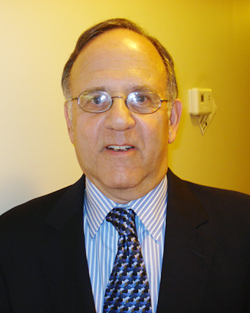
Present Positions
Psychiatrist, Geriatrics/Extended Care, Ralph H. Johnson V.A. Hospital, Charleston, South Carolina.
Psychiatrist, Private Practice, Charleston, South Carolina.
Bio-sketch
Dean Schuyler was born in New York City on September 15, 1942. Educated at the Bronx High School of Science and New York University, he attended NYU School of Medicine, and completed Residency in Psychiatry at the University of Pennsylvania in 1971.
Dr. Schuyler served in the U.S. Public Health Service at the National Institute of Mental Health in Washington, D.C .He received Board Certification in Psychiatry in 1974, and was re-certified in 2002. He has maintained a private practice of Adult Psychiatry from 1971-1997 in Rockville, Maryland; and from 2003-Present in Charleston, South Carolina.
He has taught psychiatric residents in cognitive therapy and depression at Georgetown University, Sheppard Pratt Hospital, and at the Medical University of South Carolina (MUSC). He worked at the Adult Primary Care Clinic at MUSC (1997-2003), and alongside Dr. Frank Brescia in Oncology at MUSC (2000-2003). In September, 2007, he was hired to join an outpatient oncology practice where he worked for 18 months with 400 cancer patients helping them to adjust to their disease.
In March, 2010, he was hired by the Department of Medicine at the Charleston V.A. Hospital to join a Palliative Care Team. He continues to work there 12 hours a week, treating geriatric patients from a cognitive therapy viewpoint ,and teaching medical residents about the end of life. He is the author of 89 publications, recently publishing six articles each year in a space he is responsible for called “Psychotherapy Casebook” in the Primary Care Journal for CNS Disorders. Dr. Schuyler has made over 300 presentations, including lectures, seminars and workshops, from 1971-present.
He has lived in Charleston, S.C. with his wife Terry since September, 1997. They have two daughters, Rachel and Amy, who each live in the New Jersey and New York areas.
Congnitive Therapy at The End Of Life
Abstract
I was hired by the Charleston Veterans Administration Hospital in 2010 to join a Palliative Care Team. As a psychiatric resident in 1969, I was taught the psychotherapeutic method of Cognitive Therapy by Dr. Tim Beck at the University of Pennsylvania. In my final year of training, I was asked to supervise Dr. Martin Seligman, a noted psychologist. Soon after I came to MUSC in Charleston, South Carolina, I was asked to work alongside Dr. Frank Brescia to treat his supportive care cancer patients with him. Each of these teachers made an important impact upon me.
Today, I will first speak about the psychotherapeutic method of Cognitive Therapy. I learned that American cancer patients wanted to speak with their doctors about cancer. I applied the cognitive therapy model to helping the patient adjust to a diagnosis of cancer. I have written 4 books (about Cognitive Therapy and Depression) and nearly 90 scientific papers. When I was asked to join a Palliative Care Team by the V.A. Department of Medicine, it made sense to me to apply the model to aiding the adjustment of patients with many different illnesses to the end of life.
Cognitive Therapy is psycho-educational, and seeks to help the patient identify meanings in the present time and situation. When those meanings are associated with distress, it suggests that the patient (aided by the therapist) find strategic alternatives that may relieve the distress. It is not insight-oriented, does not discuss the past and does not utilize the concept of an unconscious. It deals with the patient at the end of life by emphasizing this time as a ”stage” to be designed by the patient for him or herself.
I will comment about the role of palliative care, and explain the concept of life stage. I will speak about choice, effective communication between doctors and patients, and the importance of establishing a relationship between doctor and patient. I will review issues commonly dealt with by patients in this “end of life” stage. I will discuss the advantages I see in applying the cognitive model, and present several useful cognitive therapy techniques.
I will end by presenting several case examples in which patients have found this approach to be useful.
